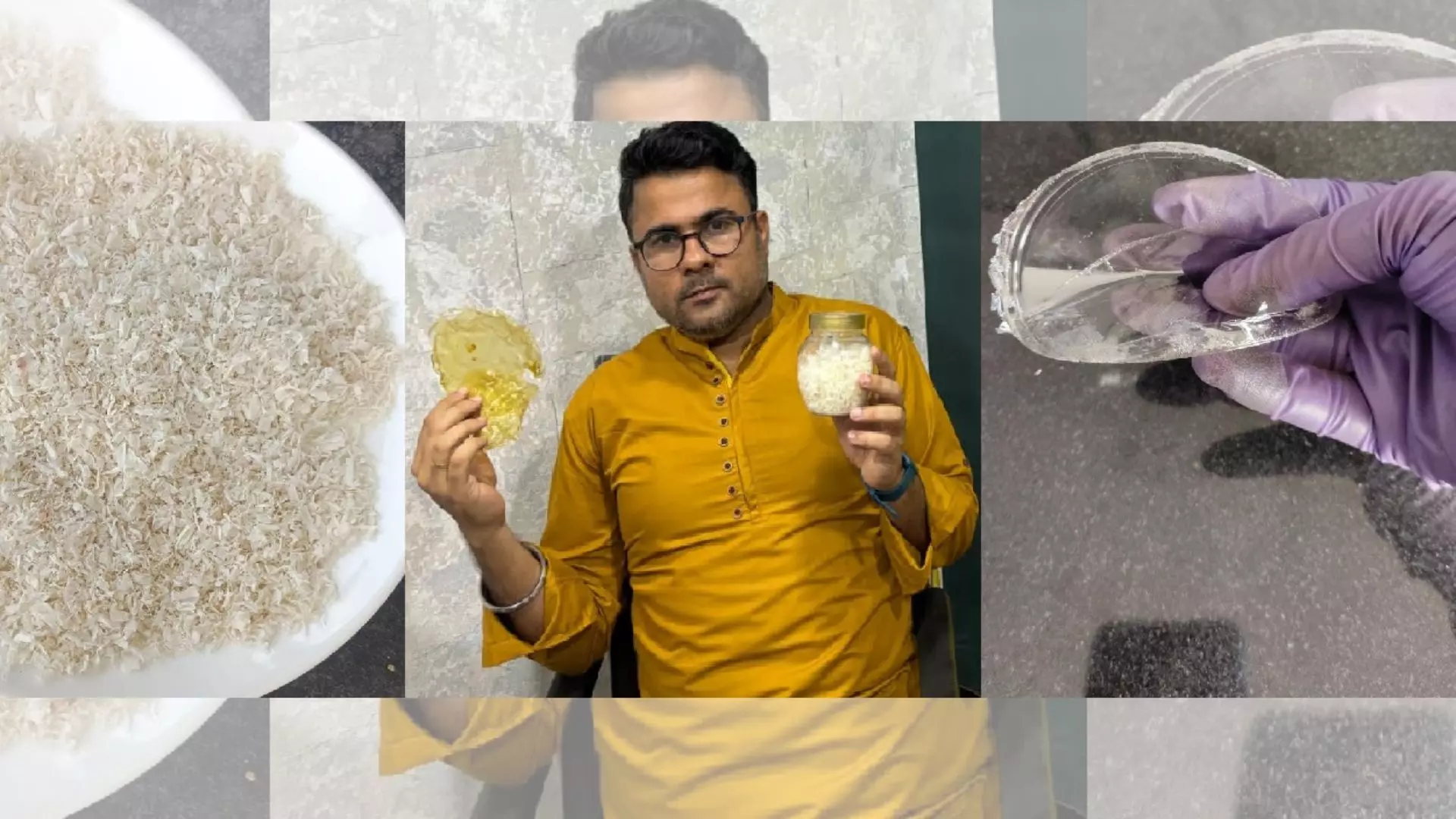
Bhubaneswar: Scientists at Natnov Bioscience, a biotech startup in Odisha, are making significant progress in tackling seafood waste, recognized by the central government’s Start-up India initiative and the state’s Chief Minister Krishi Udyog Yojana. This year alone, they aim to convert 5,000 metric tons of seafood waste into bioeconomy products, including innovative bioplastics.
The team has developed an environmentally friendly bioplastic material that can act as a sustainable alternative to synthetic plastics. By using the by-products of India’s marine fisheries, particularly crustacean waste, they are tapping into a valuable source of organic materials and natural compounds.
“Our work focuses on extracting biopolymers from shrimp waste while integrating materials such as caster and filler. Chitin and biopolymers derived from crustacean shells undergo rigorous evaluation for quality, including tests for ash content, moisture, solubility, and yield. The results confirm their high-level properties. “Dr. Siddharth Pati, Scientific Director of Natnov Biosciences in Khantapada, Balasore.
In a comparative study, the team evaluated the biodegradability of their bioplastic against a traditional synthetic plastic, polypropylene. During the weeks of observation, the bioplastic exhibited significant weight loss and color changes, showing its potential for diverse applications, particularly in food packaging.
“Our bioplastic exhibits potent antimicrobial activity, making it an excellent candidate for food packaging. These bioplastic films not only protect food from microbial contamination, but can also extend shelf life, revolutionizing the packaging industry,” added Dr. Pati.
The increasing volume of solid waste due to industrialization and urbanization has emphasized the urgent need for sustainable waste management solutions. Natnov Bioscience has been tackling this challenge for years by converting seafood processing waste into high-value products such as biostimulants and bioplastics. “Through our efforts, we contribute to a clean environment while advancing India’s vision of a circular bioeconomy,” said Dr. The husband said.
The circular bio-economy concept aims to recycle waste into renewable resources, addressing critical global concerns such as environmental degradation and food security. “So far, we have assessed 5,000 metric tonnes of seafood waste, making us the first in Odisha to contribute significantly to the United Nations Sustainable Development Goals (SDGs),” he said.
The shrimp processing industry in India generates enough waste to account for 40-60 percent of the weight of the shrimp. If this waste is not treated, harmful gases such as ammonia and methane are released, which threaten ecosystems and human health. However, waste also serves as a rich secondary raw material, providing opportunities to produce chitosan and related products with applications in the food, agriculture, pharmaceutical, cosmetology, textile, and paper industries.
One of the most important environmental challenges today is plastic pollution, particularly from single-use plastic products (SUPPs) linked to food packaging. “Plastic waste has become ubiquitous, affecting marine and freshwater ecosystems as well as economies and human societies,” said Dr. The husband said. “Our biopolymer-based bioplastics offer a dual solution: reducing plastic pollution while addressing seafood waste.”
Notably, these bioplastics have antimicrobial properties, further supporting food safety initiatives by extending the freshness of perishable items. This innovation is in line with India’s Swachh Bharat mission and the global push for sustainable development.
“By converting waste into value, we are proud to contribute to a cleaner, greener world. Our efforts echo the Prime Minister’s call for a circular economy, creating tangible impacts on India’s environmental and economic landscape,” said Dr. Pati concluded.